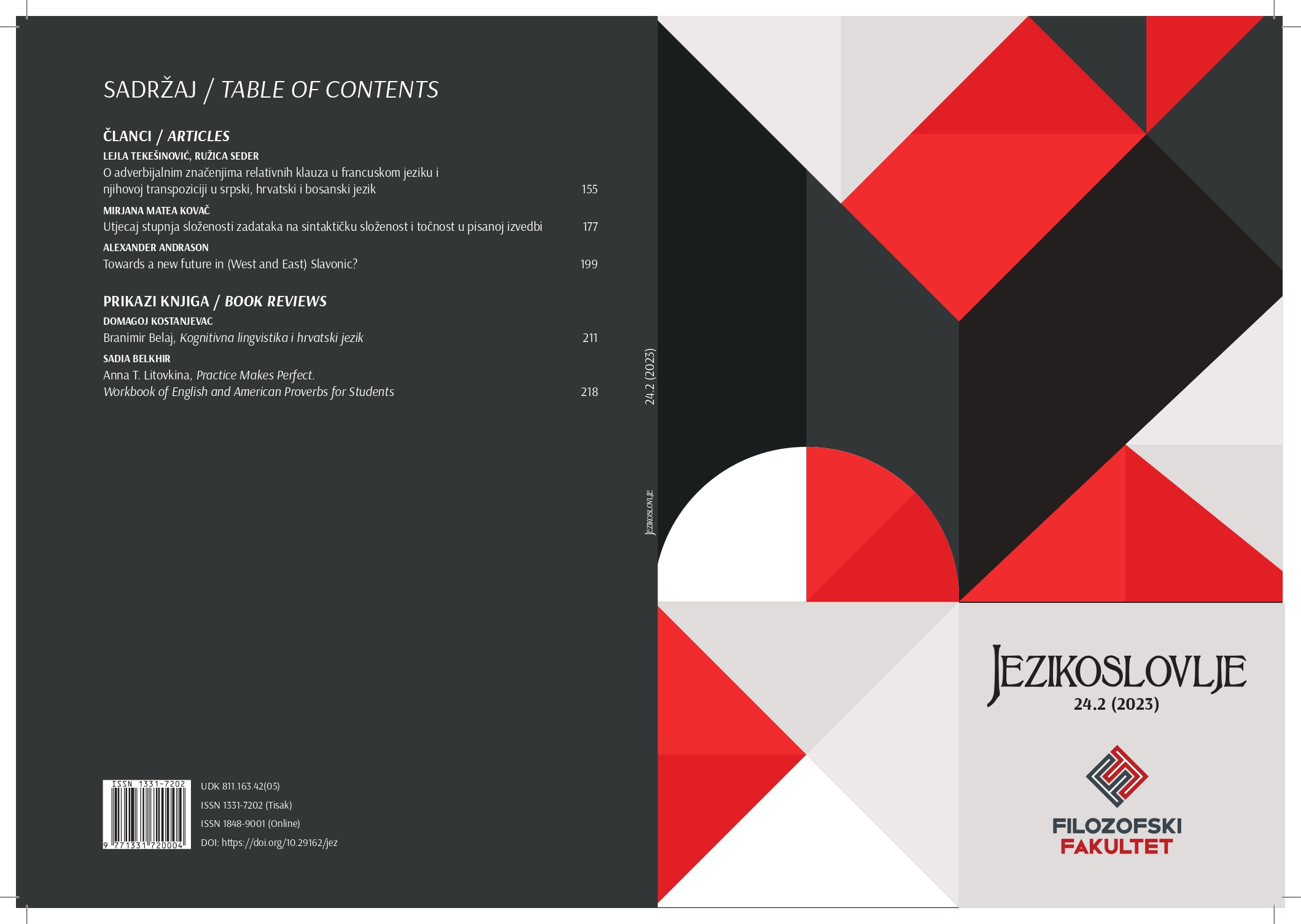Towards a new future in (West and East) Slavonic?
Towards a new future in (West and East) Slavonic?
Author(s): Alexander AndrasonSubject(s): Language studies, Language and Literature Studies, Theoretical Linguistics, Morphology, Syntax, Western Slavic Languages, Eastern Slavic Languages
Published by: Filozofski fakultet, Sveučilište Josipa Jurja Strossmayera, Osijek
Keywords: Slavonic languages; Polish; morphosyntax; future tense; aspect; serialization;
Summary/Abstract: This article demonstrates that the rule according to which perfective verbs are incompatible with the future auxiliary ‘be’ in West and East Slavonic languages is less strict than has been claimed in scholarship. In colloquial Polish and in less standard varieties of Upper and Lower Sorbian, as well as in Australian Russian, the ‘be’ auxiliary may be combined with perfective verbs. Such future perfective constructions with the ‘be’ auxiliary arise because of analogical pressures, language internal and/or external. The Polish perfective future with ‘be’ instantiates furthermore an analogy-driven SVC – an additional fourth source of SVCs across languages.
Journal: Jezikoslovlje
- Issue Year: XXIV/2023
- Issue No: 2
- Page Range: 199-208
- Page Count: 10
- Language: English

